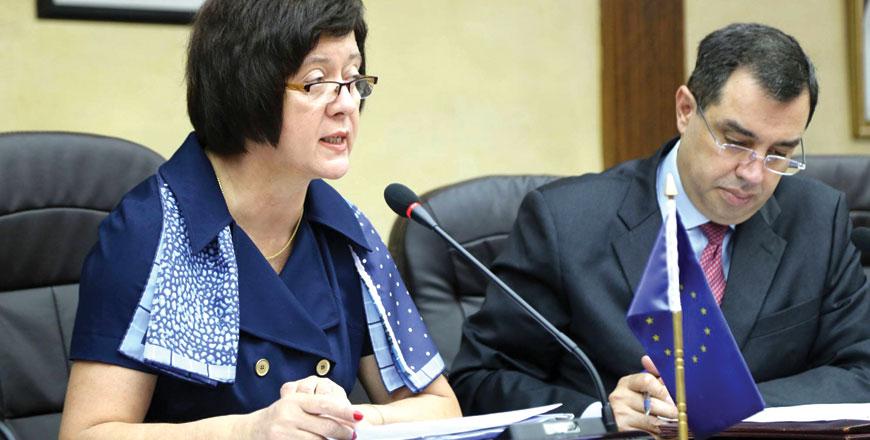AMMAN –– With the cost of educating Syrian students in the Kingdom’s schools set to reach JD400 million by the end of this year, the EU on Monday granted Jordan 40 million euros (around JD38.6 million) to reduce the burden of hosting hundreds of thousands of Syrians.
Under two grant agreements, 30 million euros will go to the education sector, while 10 million euros will cover the cost of revamping sewage networks in the northern region, where Syrian refugees live among host communities, officials from both sides said.
Planning Minister Ibrahim Saif and EU Ambassador to Jordan Joanna Wronecka signed the agreements at a ceremony attended by Education Minister Mohammad Thneibat.
Saif explained that the 30 million euros to support the education sector –– to be added to another 33 million euros previously granted by the EU –– seeks to enable the government to cover the costs of hiring extra teachers, printing additional textbooks and distributing them to Syrian students, who are also exempted from tuition fees.
The 40 million euros are part of the additional EU aid pledges worth 60 million euros to help Jordan deal with the Syrian crisis, the minister noted.
Around 115,000 Syrian students are currently enrolled in public schools, and the number is expected to rise to 140,000 by the end of the year, according to Thneibat.
“Education expenses for Syrian students are going up every month,” he said, indicating that the cost of educating Syrians is set to reach JD400 million this year.
Official figures estimate the cost of teaching each Syrian student at JD3,000. “We at the EU appreciate the policies of the Jordanian government towards Syrians and we have a moral duty to support Jordan in such difficult times,” Wronecka said.
“At the beginning we focused our efforts on providing education to students in the Zaatari Refugee Camp, but then we realised that host communities need our support too,” she added.
The second 10 million-euro grant will be used for a project to improve sewage networks in the Beit Ras area in Irbid Governorate, some 80km north of Amman, to be implemented by the Water Authority of Jordan in cooperation with the German Development Bank.
On the sidelines of the signing ceremony, Saif indicated that Jordan and the EU are in talks to provide the Kingdom with a 180 million-euro soft loan, which is expected to be signed this year.













